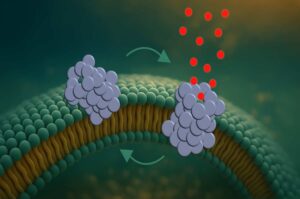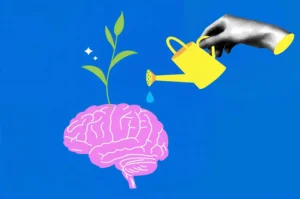Have you or someone you love been acting confused, paranoid, or hearing voices? It could be more than stress. Let’s break down what schizophrenia really is—and how it can be managed with the right help.
Table of Contents
ToggleWhat Is Schizophrenia?
Definition in Simple Terms
Schizophrenia is a serious mental health condition that affects how a person thinks, feels, and behaves. In simple terms, it’s like the brain has trouble distinguishing between what’s real and what’s not. People with schizophrenia may hear voices, see things that aren’t there, or hold unusual beliefs. It’s not the same as having a “split personality”—it’s a brain disorder that impacts perception, emotion, and daily functioning.
Who Does It Affect? (Age, Gender, Onset)
Schizophrenia typically begins in late adolescence or early adulthood—usually between ages 16 and 30. Men often show symptoms slightly earlier than women. While it can affect anyone, regardless of background, genetics and family history play a significant role. It’s rare in children and uncommon in people over 45, but not impossible. The condition affects both men and women almost equally, though symptoms may manifest differently.
Myths vs. Facts
Myth: Schizophrenia means having multiple personalities.
Fact: It does not involve a split personality; that’s a different disorder (Dissociative Identity Disorder).
Myth: People with schizophrenia are violent.
Fact: Most people with schizophrenia are not violent and are more likely to be victims than perpetrators.
Myth: Schizophrenia can’t be treated.
Fact: With the right medication, therapy, and support, many people manage the condition well and live fulfilling lives.
Key Symptoms of Schizophrenia
Schizophrenia is a complex mental health condition that affects how a person thinks, feels, and behaves. Understanding its symptoms is crucial for early detection and effective treatment. Here are the primary categories of symptoms:
Positive Symptoms (Hallucinations, Delusions)
Positive symptoms add experiences that are not typically present in healthy individuals. These include:
- Hallucinations – Most commonly hearing voices that others don’t hear. These can also involve seeing, feeling, or smelling things that aren’t real.
- Delusions – Strongly held false beliefs, such as thinking someone is controlling your mind or that you’re being watched.
These symptoms can be extremely distressing and may cause individuals to lose touch with reality.
Negative Symptoms (Lack of Emotion, Withdrawal)
Negative symptoms refer to the loss or reduction of normal emotional and behavioral functions:
- Flat affect – A noticeable lack of emotional expression, such as speaking in a monotone voice or having a blank facial expression.
- Social withdrawal – Avoiding friends, family, or social interactions.
- Lack of motivation – Difficulty starting or finishing everyday tasks, like cooking or hygiene.
These symptoms are often misunderstood but deeply impact quality of life and day-to-day functioning.
Cognitive Symptoms (Poor Focus, Memory Issues)
Cognitive symptoms affect memory and thinking skills, making it hard to live independently:
- Disorganized thinking – Trouble organizing thoughts, following conversations, or responding appropriately.
- Poor concentration – Difficulty focusing on tasks, which can disrupt work or school performance.
- Memory problems – Especially trouble with working memory, or holding information long enough to use it.
These symptoms may be subtle but can greatly interfere with a person’s ability to function effectively.
Early Warning Signs to Watch For
Early detection can make a significant difference. Here are warning signs that may appear before full-blown symptoms:
- Gradual withdrawal from social activities
- Decline in academic or work performance
- Increased suspiciousness or paranoia
- Trouble thinking clearly or expressing thoughts
- Sudden change in sleep patterns or mood
If you or a loved one notices these early signs, seeking professional help promptly can lead to better outcomes.
What Causes Schizophrenia?
🧬 Genetic Factors
Schizophrenia often runs in families, suggesting a strong genetic link. If a close relative, like a parent or sibling, has the condition, your risk increases. However, genes alone don’t cause schizophrenia—they only make a person more vulnerable. It’s a complex mix of inherited traits and other biological influences, not a single “schizophrenia gene.”
🧠 Brain Chemistry and Structure
Imbalances in brain chemicals—especially dopamine and glutamate—play a critical role in schizophrenia. These neurotransmitters help regulate thinking, emotions, and perception. In people with schizophrenia, brain imaging studies often show subtle differences in brain structure, such as enlarged ventricles or reduced gray matter. These changes can disrupt communication between different brain regions.
🌍 Environmental Triggers (Stress, Drug Use)
While genetics and brain chemistry lay the foundation, certain environmental factors can trigger the onset of schizophrenia in vulnerable individuals. High stress levels—especially during adolescence or early adulthood—can activate symptoms. Substance abuse, particularly heavy use of marijuana or hallucinogens during teenage years, may also increase the risk by altering brain chemistry and development.
How Schizophrenia Is Diagnosed
Diagnosing schizophrenia is a complex process that requires a combination of psychological assessments, medical testing, and close observation. Early and accurate diagnosis plays a vital role in managing symptoms and improving long-term outcomes.
Psychiatric Evaluation
A psychiatrist or clinical psychologist begins by conducting a detailed psychiatric evaluation. This includes a comprehensive interview to understand the patient’s thoughts, emotions, behaviors, and any hallucinations or delusions they may be experiencing. The specialist also gathers information from family members to assess changes in personality, social withdrawal, or unusual beliefs. This evaluation follows criteria from the DSM-5 (Diagnostic and Statistical Manual of Mental Disorders), which outlines the key symptoms needed for a schizophrenia diagnosis.
Medical Tests and Imaging
Since other medical conditions can mimic schizophrenia symptoms—such as brain tumors, thyroid issues, or substance abuse—doctors often order tests to rule these out. Common procedures include blood tests, MRI scans, or CT scans to check for abnormalities in brain structure or function. These tests don’t diagnose schizophrenia directly, but they help eliminate other possible causes.
Importance of Early Detection
Early diagnosis of schizophrenia can significantly affect a person’s quality of life. Identifying symptoms during the initial or “prodromal” phase—when warning signs like social withdrawal, anxiety, or unusual thoughts begin—can help start treatment sooner. With prompt medical support, individuals are more likely to stabilize, manage their symptoms, and maintain relationships and responsibilities.
Best Treatment Options for Schizophrenia
Schizophrenia is a complex mental health condition, but with the right treatment plan, individuals can lead fulfilling lives. Effective treatment usually combines medication, therapy, support systems, and lifestyle changes. Here’s a breakdown of the best treatment options:
Medication: Antipsychotics and Side Effects
Antipsychotic medications are the cornerstone of schizophrenia treatment. They help control symptoms like hallucinations, delusions, and disorganized thinking.
- Typical and Atypical Antipsychotics: Newer (atypical) medications like Risperidone, Olanzapine, and Aripiprazole tend to have fewer motor side effects than older drugs.
- Side Effects to Watch: These may include weight gain, drowsiness, tremors, or sexual dysfunction. Regular follow-ups are essential for managing these effects.
- Long-Term Use: Some patients may require lifelong medication, but with careful management, dosages can often be minimized.
Expert Tip: Never stop medication abruptly without consulting a psychiatrist, as it may lead to relapse.
Psychotherapy and CBT
Psychological therapies play a key role in helping individuals manage schizophrenia beyond just symptom control.
- Cognitive Behavioral Therapy (CBT): Helps challenge delusional thinking, reduce anxiety, and improve coping mechanisms.
- Family Therapy: Educates family members and reduces stress in the home environment—vital for long-term stability.
- Insight-Oriented Therapy: Builds awareness of the illness and improves medication compliance.
Expert Tip: CBT is most effective when combined with medication and continued over several months.
Social Support and Rehab Programs
Community support is vital for helping individuals regain independence and social functioning.
- Supported Employment & Education: Tailored programs assist in job placement and continuing education.
- Rehabilitation Centers: Focus on social skills training, vocational counseling, and routine building.
- Peer Support Groups: Offer emotional comfort, real-world insights, and reduce feelings of isolation.
Expert Tip: Involvement in structured day programs can significantly reduce rehospitalization rates.
Lifestyle Tips for Long-Term Management
Daily habits can significantly impact symptom management and overall well-being.
- Sleep and Diet: Regular sleep and a nutrient-rich diet support brain health and medication absorption.
- Stress Reduction: Yoga, mindfulness, and breathing exercises reduce triggers and help maintain balance.
- Avoid Substance Use: Drugs and alcohol can worsen symptoms and interact poorly with medication.
- Routine and Structure: Keeping a consistent schedule improves motivation and reduces confusion.
Expert Tip: Use a daily planner or app to track mood, medication, and appointments for better self-monitoring.
Living with Schizophrenia: What to Expect
💡 Tips for Family & Caregivers
Supporting someone with schizophrenia can be challenging, but your role is crucial in their journey.
- Educate Yourself: Learn about the condition to understand their behavior and needs.
- Practice Patience: Symptoms may fluctuate, and progress can take time.
- Listen Without Judgment: Let them feel heard without trying to “fix” everything.
- Set Boundaries: Maintain your mental health by setting limits and seeking your own support.
- Encourage Treatment Adherence: Gently support medication schedules and therapy appointments.
Your consistent support can make a world of difference.
🏡 How to Create a Supportive Environment
A stable, low-stress environment promotes better outcomes for individuals with schizophrenia.
- Reduce Triggers: Limit overstimulation, loud noise, or chaotic schedules.
- Foster Open Communication: Create a space where they can speak without fear or shame.
- Promote Routine: Consistent daily routines help reduce stress and disorganization.
- Be Flexible, Not Forceful: Encourage social and personal growth at their pace.
- Stay Calm During Episodes: Your calmness can help de-escalate situations and restore balance.
Small environmental changes can nurture big emotional safety.
🌱 Inspiring Stories of Recovery and Hope
Recovery from schizophrenia is possible—and many people live fulfilling, meaningful lives.
- John’s Story: Diagnosed in his early 20s, John now works part-time and volunteers at a mental health center.
- Priya’s Journey: Through therapy, art, and family support, Priya manages symptoms and is pursuing her education.
- Marcus’s Message: “Don’t give up on yourself. Your life isn’t over. It just looks different now.”
These stories show that with the right support and resilience, hope can shine even in the darkest times.
Read Also:
Worried All the Time? These Proven Tips Can Help You Relax
The Psychology Behind Broken Bonds and Growing Hatred
FAQ:
1. What are the first signs of schizophrenia?
Social withdrawal, unusual thoughts, poor concentration, sleep issues, and subtle changes in emotions or behavior.
2. Can schizophrenia be cured completely?
Schizophrenia can’t be fully cured, but symptoms can be managed effectively with treatment and support.
3. Is schizophrenia a genetic disorder?
Yes, genetics play a role, but environment and brain chemistry also contribute to schizophrenia’s development.
4. How is schizophrenia different from bipolar disorder?
Schizophrenia involves delusions and hallucinations, while bipolar disorder features mood swings between mania and depression.
5. Can someone with schizophrenia live a normal life?
Yes, with proper treatment, therapy, medication, and support, many lead fulfilling and productive lives.









